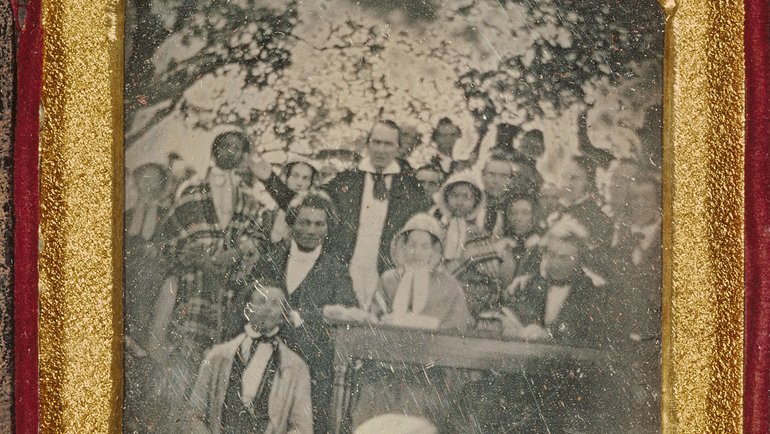Menu
Hot-Topics
May 17, 2022 | SCOTUS Wraps Up Oral Arguments for the Term
Category: Historical

Texas v White Holds Confederate States Never Left Union
In Texas v White, 74 U.S. 700 (1869), the U.S. Supreme Court held that Texas never legally left the Union during the Civil War because the U.S. Constitution did not allow states to unilaterally secede. Accordingly, the acts of the insurgent state gov...

Cooley v Board of Wardens: States Not excluded from Regulating Interstate Commerce
In Cooley v Board of Wardens, 53 U.S. 299 (1852), the U.S. Supreme Court held that the state may regulate interstate commerce under the Constitution’s Commerce Clause, provided that the subject of the regulation is local in nature. The F...

Strader v. Graham Lays Foundation for Dred Scott Decision
In Strader v. Graham, 51 U.S. 82 (1851), the U.S. Supreme Court held that it had no jurisdiction to determine whether slaves whose master allowed them to occasionally travel from Kentucky into Ohio acquired a right to freedom. Nonetheless, the justic...

Jones v Van Zandt: Supreme Court Tackles Constitutionality of Slavery
Jones v Van Zandt, 46 U.S. 215 (1847) is one of the U.S. Supreme Court cases that considers slavery issues before the Civil War. The justices ultimately ruled against abolitionists, holding that the Fugitive Slave Law was a valid exercise of the auth...
Swift v Tyson Authorizes Federal Courts to Create Federal “Common” Law
In Swift v Tyson, 41 U.S. 1 (1842), the U.S. Supreme Court held that the federal courts were authorized to create their own body of common law when hearing cases based on diversity jurisdiction and were not bound by the decisions of the state courts ...

Worcester v Georgia: Indian Sovereignty and the States
In Worcester v Georgia, 31 U.S. 515 (1832), the U.S. Supreme Court held that the Cherokee Nation was sovereign. It also ruled that the federal government — and not the states — was authorized under the Constitution to deal with Indian nations. ...
Previous Articles
SCOTUS Wraps Up Oral Arguments for the Term
by DONALD SCARINCI on May 17, 2022
The U.S. Supreme Court has concluded its oral arguments for the October 2021 Term. The justices hea...
SCOTUS Rules Censure of Elected Board Member Didn’t Violate First Amendment
by DONALD SCARINCI on May 10, 2022
In Houston Community College System v. Wilson, 595 U.S. ____ (2022), the U.S. Supreme Court held th...
Supreme Court Breach Is Not the First Involving Roe v. Wade
by DONALD SCARINCI on
The recent disclosure of Justice Samuel Alito’s decision purporting to overturn Roe v. Wade is ar...
The Amendments
-
Amendment1
- Establishment ClauseFree Exercise Clause
- Freedom of Speech
- Freedoms of Press
- Freedom of Assembly, and Petitition
-
Amendment2
- The Right to Bear Arms
-
Amendment4
- Unreasonable Searches and Seizures
-
Amendment5
- Due Process
- Eminent Domain
- Rights of Criminal Defendants
Preamble to the Bill of Rights
Congress of the United States begun and held at the City of New-York, on Wednesday the fourth of March, one thousand seven hundred and eighty nine.
THE Conventions of a number of the States, having at the time of their adopting the Constitution, expressed a desire, in order to prevent misconstruction or abuse of its powers, that further declaratory and restrictive clauses should be added: And as extending the ground of public confidence in the Government, will best ensure the beneficent ends of its institution.
Awards




